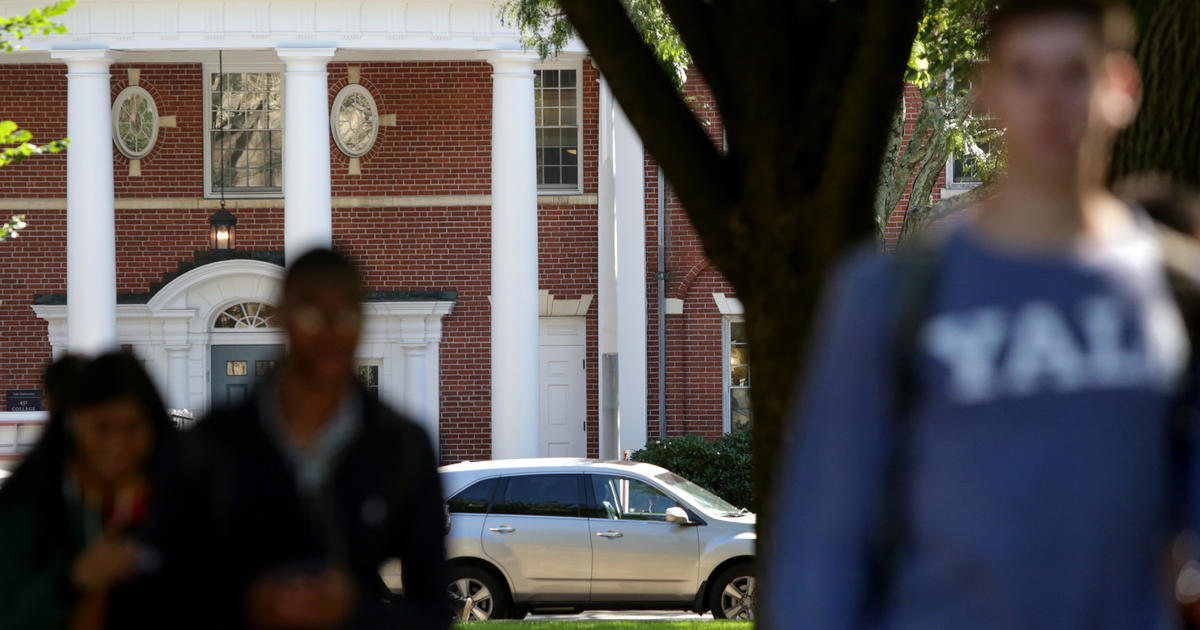News
Trump opposes more funds for Postal Service over mail-in voting
Biden and Harris call for three-month nationwide mask mandate
EMS workers are quitting. COVID-19 makes the job too risky
Trump campaign adviser floats false theory about Harris’ eligibility
Lake Fire in California continues to rage, growing to 10,500 acres
How “cancel culture” changed these 3 lives forever
Fortnite maker sues Apple after being booted from App store
Trump is “a uniter of Democrats,” political expert says
South Dakota governor getting $400,000 fence to protect her
2020 Elections
Battleground Tracker: Latest polls, state of the race and more
5 things to know about CBS News’ 2020 Battleground Tracker
Biden has edge in North Carolina, race is tight in Georgia — CBS News poll
Who might be Joe Biden’s running mate?
Why some mail-in ballots are rejected and how to make sure your vote counts
What happens if the president doesn’t accept the election results?
Election Day could turn into “Election Week” with rise in mail ballots
GOP confident in Ohio, but Dems think it’s within reach
Shows
CBS This Morning
CBS Evening News
60 Minutes
CBS This Morning: Saturday
Face The Nation
Sunday Morning
48 Hours
CBSN Originals
NCIS: The Cases They Can’t Forget
Live
LIVE
More
Search
Live
Watch CBSN Live
Harvard affirmative action suit
Harvard affirmative action suit
02:09
A Justice Department investigation has found Yale University is illegally discriminating against Asian American and White applicants, in violation of federal civil rights law, officials said Thursday. Yale denied the allegation, calling it “meritless” and “hasty.”
The findings, detailed in a letter to the college’s attorneys Thursday, mark the latest action by the Trump administration aimed at rooting out discrimination in the college application process, following complaints from students about the process at some Ivy League colleges. The Justice Department had previously filed court papers siding with Asian American groups who had levied similar allegations against Harvard University.
The two-year investigation concluded that Yale “rejects scores of Asian American and White applicants each year based on their race, whom it otherwise would admit,” the Justice Department said. The investigation stemmed from a 2016 complaint against Yale, Brown and Dartmouth.
“Yale’s race discrimination imposes undue and unlawful penalties on racially-disfavored applicants, including in particular Asian American and White applicants,” Assistant Attorney General Eric Dreiband, who heads the department’s civil rights division, wrote in a letter to the college’s attorneys.
Prosecutors found that Yale has been discriminating against applicants to its undergraduate program based on their race and national origin and “that race is the determinative factor in hundreds of admissions decisions each year.” The investigation concluded that Asian American and White students have “only one-tenth to one-fourth of the likelihood of admission as African American applicants with comparable academic credentials,” the Justice Department said.
“Unlawfully dividing Americans into racial and ethnic blocs fosters stereotypes, bitterness, and division,” Dreiband said in a statement. “It is past time for American institutions to recognize that all people should be treated with decency and respect and without unlawful regard to the color of their skin.”
The investigation also found that Yale uses race as a factor in multiple steps of the admissions process and that Yale “racially balances its classes.”
Yale University Law School.
Yana Paskova / Getty Images
The Supreme Court has ruled colleges and universities may consider race in admissions decisions but has said that it must be done in a narrowly tailored way to promote diversity and should be limited in time. Schools also bear the burden of showing why their consideration of race is appropriate.
In a statement, Yale said it “categorically denies this allegation,” has cooperated fully with the investigation and has been continually turning over “a substantial amount of information and data.”
“Given our commitment to complying with federal law, we are dismayed that the DOJ has made its determination before allowing Yale to provide all the information the Department has requested thus far,” the university said in a statement. “Had the Department fully received and fairly weighed this information, it would have concluded that Yale’s practices absolutely comply with decades of Supreme Court precedent.”
The university said it considers a multitude of factors and looks at “the whole person when selecting whom to admit among the many thousands of highly qualified applicants.”
“We are proud of Yale’s admissions practices, and we will not change them on the basis of such a meritless, hasty accusation,” the statement said.
The Justice Department has demanded that Yale immediately stop and agree not to use race or national origin for upcoming admissions. The government also says that if Yale proposes that it will continue to use race or national origin as a factor in future admission cycles, the college must first submit a plan to the Justice Department “demonstrating its proposal is narrowly tailored as required by law, including by identifying a date for the end of race discrimination.”
The Justice Department has also previously raised similar concerns about Harvard University, which prosecutors accused of “engaging in outright racial balancing,” siding with Asian American students in a lawsuit who alleged the Ivy League school discriminated against them.
A federal judge in 2019 cleared Harvard of discriminating against Asian American applicants in a ruling that was seen as a major victory for supporters of affirmative action in college admissions across the U.S. That ruling has been appealed and arguments are scheduled for next month.
In the Harvard case, the Justice Department had argued that the university went too far in its use of race, but the judge disagreed. Though the Supreme Court has ruled that colleges’ use of race in admissions must be “narrowly tailored” and can be only a “plus factor,” past rulings still give colleges latitude in considering a wide range of factors, including race, as they build their classes.
Be in the know. Get the latest breaking news delivered straight to your inbox.
View CBS News In
CBS News App
Safari
